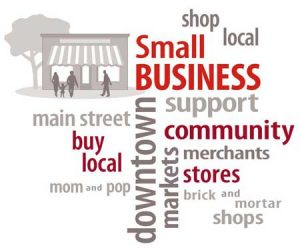Just about scraping a profit, or not at all? Have a constant battle to pay the overheads with little left in your pocket? Still got the drive and the passion but wondering when your big break is going to happen?
Small Business Saturday UK is a nationwide initiative encouraging people to connect with smaller, local businesses. Make sure you check out the range of online business courses to expand your company! Are you taking full advantage?
The importance of advertising and promotion
Advertising cannot be under estimated. When a small business stutters and falters, one of the main reasons its survival was hindered was the lack of advertising.
However, this doesn’t mean giving away your product for free or spending thousands of pounds you don’t have on advertising that may or may not be successful.

For those studying a business management course, making a profit should be something a small business does every year and should increase year on year too, unless trading conditions are particularly tough.
Improving the bottom line
The bottom line is a business’s income after all expenses and overheads have been paid. It is a term used to describe all kinds of situations. If your net profit or bottom line is minimal, or at worst in the red, you need these five tips to boost profitable performance, which do not include giveaways or advertising.
#1 Change operating procedures
Frankly, if operating procedures are inefficient or costing far too much money, giving away a product or spending on advertising is wasted cash to a certain extent. More sales need to be generated whilst reducing overheads and expenses.
- To increase sales, try cross selling. This is where a new service or product is offered that compliments a current product. For example, a cleaning company could offer a package of cleaning products alongside its cleaning services.
- Think about relationship based sales where customers keep coming back. Could a monthly or yearly service or customer plan be incorporated, for example? A cleaning company could offer 10 hours cleaning per month, paid for as a yearly contract spread over 10 monthly payments etc.
- Discounted sales rewards loyalty, such as opt for a 4-hour clean every week for the next 10 weeks and get the ironing done free etc.
As well as considering increasing sales in this way, be critical about administrative procedures – could some of these functions be streamlined? Are they all needed? Would outsourcing be a cost-effective measure?
#2 Stabilising cash flow
Any business management course worth its weight will talk about cash flow and how stabilising it is the saving grace for a small business.
Stabilising cash flow can be done through prepaid services, for example ongoing payment plans. Sticking with the cleaning services example, instead of people paying each time you clean, offer a discounted rate for more hours, but spread over the longer term e.g. pay for 10 hours per month on a 6-month contract, rather than for every 4 hours you clean on the job.
This is touching on service or maintenance type contract examples, well worth any business looking at.
#3 Streamline costs
This is about streamlining all aspects of business processes, from how efficient people and processes are, to creating a system whereby information needed is captured, without it costing too much time, money and resources.

There are all kinds of free online resources that can help run a business more efficiently, especially the various cloud services such as synchronising calendars, sharing and editing documents online and so on.
Top tip – small businesses are often owed a lot of money, simply because someone doesn’t have time to chase. By checking efficiency of your business, you have a better overview of what is taking time and resources etc.
#4 Add immediacy to marketing
Social media doesn’t have to mean paid advertising, but to make any headway a small business needs to have a consistent presence on social media sites that work for them.
‘That work for them’ is the key phrase here. If Instagram is not doing anything for a business, stick with the social media channel that is. Better to stick with one, and make a good job of it, than spread too thin over several platforms.
Immediacy is key in social media presence, therefore respond when people connect with you and use it to offer your services.
#5 Make everyone a sales person…
… but this is not what you think! This isn’t just about creating leads and closing deals. It’s about attitude, customer relations and behaviour.
An online business management course will address how your employees are your biggest sales feature, as they are the people who give your business its ‘face’ – is it always a welcoming, happy and knowledgeable face?
And finally, make the most of opportunities that come your way such as Small Business Saturday, 3rd December 2016. People want to support local, small businesses, so get involved and let people know you are there.








